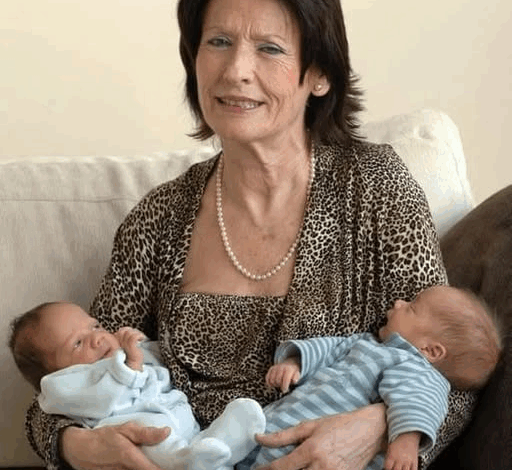At age 66 the worlds oldest mother gave birth to twin boys sparking mixed reactions including criticism from some family members who labeled her decision as selfish

At age 66, the world’s oldest mother gave birth to twin boys, sparking mixed reactions, including criticism from some family members who labeled her decision as selfish
Motherhood is one of the most timeless and meaningful experiences in human life — a journey that can begin at any stage. For some women, motherhood arrives early, even before they’ve fully embraced adulthood. For others, it comes later, after years of hope, patience, or unexpected circumstances. And for many, the path to becoming a parent is filled with challenges or heartbreak.
There isn’t a universal “right time” to become a mother. Each birth is a moment to celebrate, and every woman who brings life into the world deserves recognition for the physical and emotional strength involved. However, society doesn’t always respond with understanding or support.
In 2006, Maria Carmen del Bousada de Lara, a retired shop assistant from Cádiz, Spain, gained international attention when she gave birth to healthy twin boys — Christian and Pau — at the age of 66. She was recognized as the world’s oldest mother at the time.
Maria’s road to motherhood was not without obstacles. Determined to have children despite her age, she sold her home to fund in vitro fertilization (IVF) treatment in California. Reports later revealed that she had understated her age to doctors, claiming to be 55 rather than her true age, to qualify for the procedure. For Maria, this was a deeply personal choice, reflecting her belief that no one should be pressured to follow society’s timeline for parenthood, and that every individual should have the freedom to decide when to start a family.
Her decision, however, drew criticism from many, including some members of her own family, who described it as selfish. Maria said she initially kept her pregnancy private, and when she eventually disclosed it, her relatives thought it was a joke.
Against all odds, Maria safely delivered her twin sons, Christian and Pau. However, just six months after their birth, her joy was overshadowed by a difficult diagnosis — ovarian cancer. “They’re still babies, so I haven’t told them,” she said at the time. “They’re too young for these things.”
As Maria’s health declined, her family took on the responsibility of caring for the twins. Sadly, in 2009, Maria passed away, leaving her young sons after only a few years together. Reflecting on her decision, her brother Ricardo shared, “I think she did this late in life… but now they are here. We love these beautiful boys.”
Members of the Cádiz community, such as local resident Pilar Pinto, have expressed compassion for the family. “The boys are well cared for and doing great,” Pinto said. “It’s unfortunate that Maria didn’t get to enjoy them for longer. She deserved more time.”
Until the end, Maria stood firmly by her choice to become a mother at an advanced age. For her, the dream of motherhood outweighed the criticism, risks, and sacrifices.
Her story continues to inspire discussion — was her decision selfish, or a personal right? Perhaps it serves as a reminder of the complexities surrounding the timing of motherhood and the importance of individual choice. What remains clear is that Maria’s journey left behind two sons who are loved and cared for, and a legacy that encourages reflection on the meaning of family and timing.